Why Must China’s Bigwigs All Dye?

You can tell who’s Chinese here. Hint: it’s not the color of their skin. (Photo: State Department/Wikimedia Commons CC BY-SA 3.0)
On a recent trip to the U.S., Xi Jinping, the President of the People’s Republic of China, did the typical ceremonial things: met with technology gurus at Microsoft, appeared at the United Nations, and ate dinner at the White House.
But there was something amiss about his appearance during these talks.

If you look closely enough at photos, you’ll spot—I swear—a few stray strands of white.
This may seem like a superficial observation, but there are few communication tools more powerful in the upper ranks of Chinese politics and business than coiffures. It’s an unspoken patriotic duty for China’s male leaders—to sport jet-black hair.
The “Select Seven,” the top dogs of China’s Politburo Standing Committee, for example, have an average age of 66. No gray hairs in sight.
There’s no credible explanation for this besides hair dye—but why dye? It’s a lot of trouble, for sure, and a lot of money. While Chinese sales of colorants, specialty pills, and shampoos have been increasing since 2001, the black helmet is not expected of laypeople so much as it is a shared responsibility among bigwigs.

Hu Jintao (then 66) laughing with George Bush Sr and Jr (84 and 62) in 2008. Note the clean division by coiffure. (Photo: Eric Draper/Wikimedia Commons CC BY-SA 3.0)
Two theories exist to explain why the men may keep their hair black. First, simply, to appear youthful. In China, as the working population booms and older workers become replaceable, youth can be a big factor in hiring and promotions. The second is unity, a huge value in the Communist party. The mere fact of some dyed heads means all heads should be dyed.
As Steven Tsang, professor at the School of Contemporary Chinese Studies at the University of Nottingham, said in an interview with the BBC, “They’ve tried to show that the party is not dependent on any single personality, it’s an institution. They’ve tried to devalue the individual in favor of the party.”
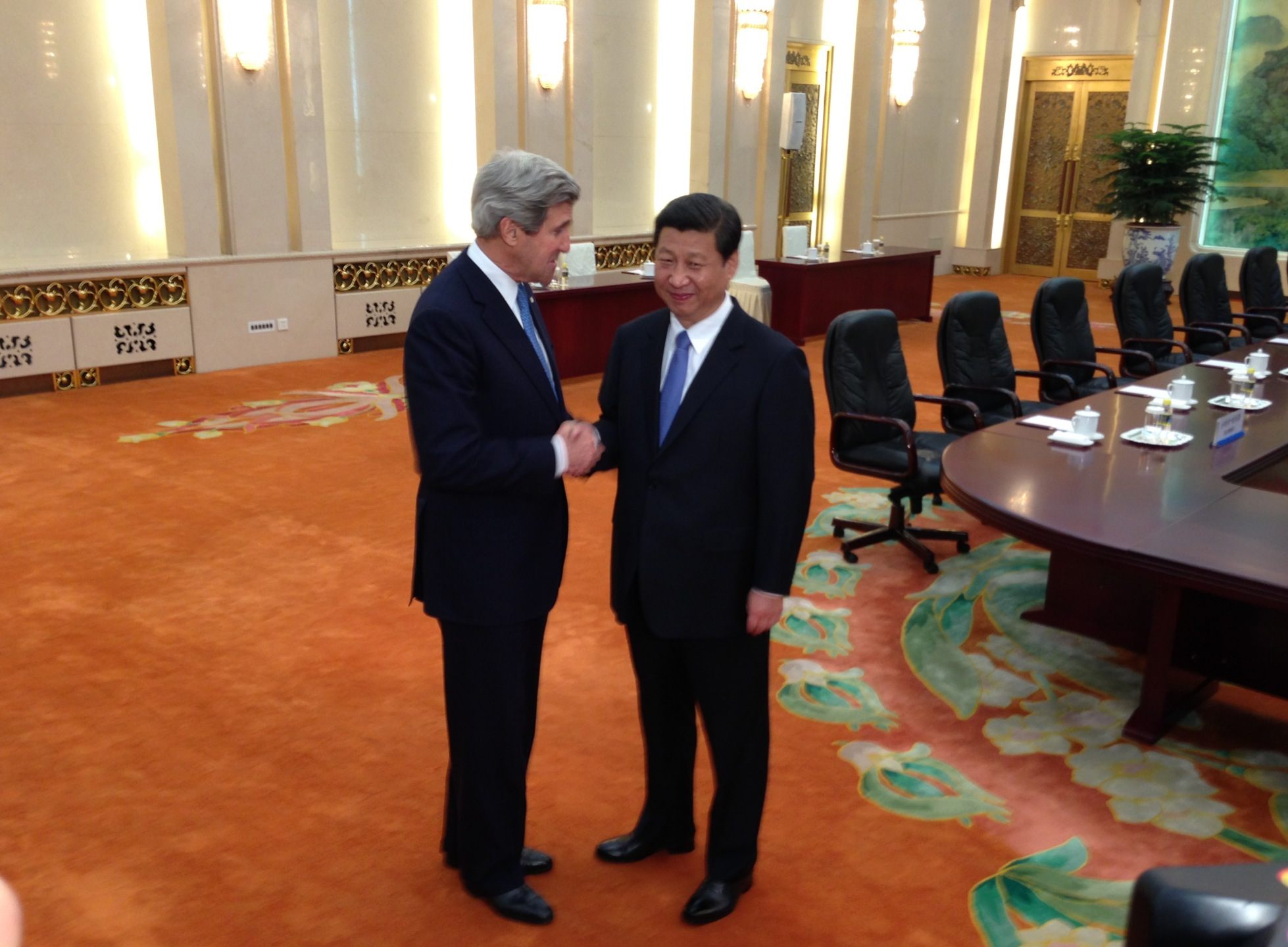
President Xi Jinping doesn’t seem to want to look at John Kerry’s unpleasingly undyed hair. (Photo: By U.S. Department of State/Wikimedia Commons CC BY-SA 3.0)
Of course, the Communist Party is far from the only political body obsessed with keeping up appearances, something referred to in Chinese as mianzi, or “face.” But other nations’ politicians don’t feel the need to dye their hair in order to maintain mianzi. India’s Narendra Modi has tufts of snow-like hair and beard, while Japan’s former leader, Junichiro Koizumi, was known for his salt-and-pepper updo. America’s latest presidents have all gone grey in office if they hadn’t made the transition already, and many would argue that grey and white hair signify authority and wisdom. And oddly enough, in traditional Chinese culture, long wispy (undyed) beards have always been revered.
In the Party, however, grey hair is a sign of seniority, in a bad way—one of the stark defects of aging.
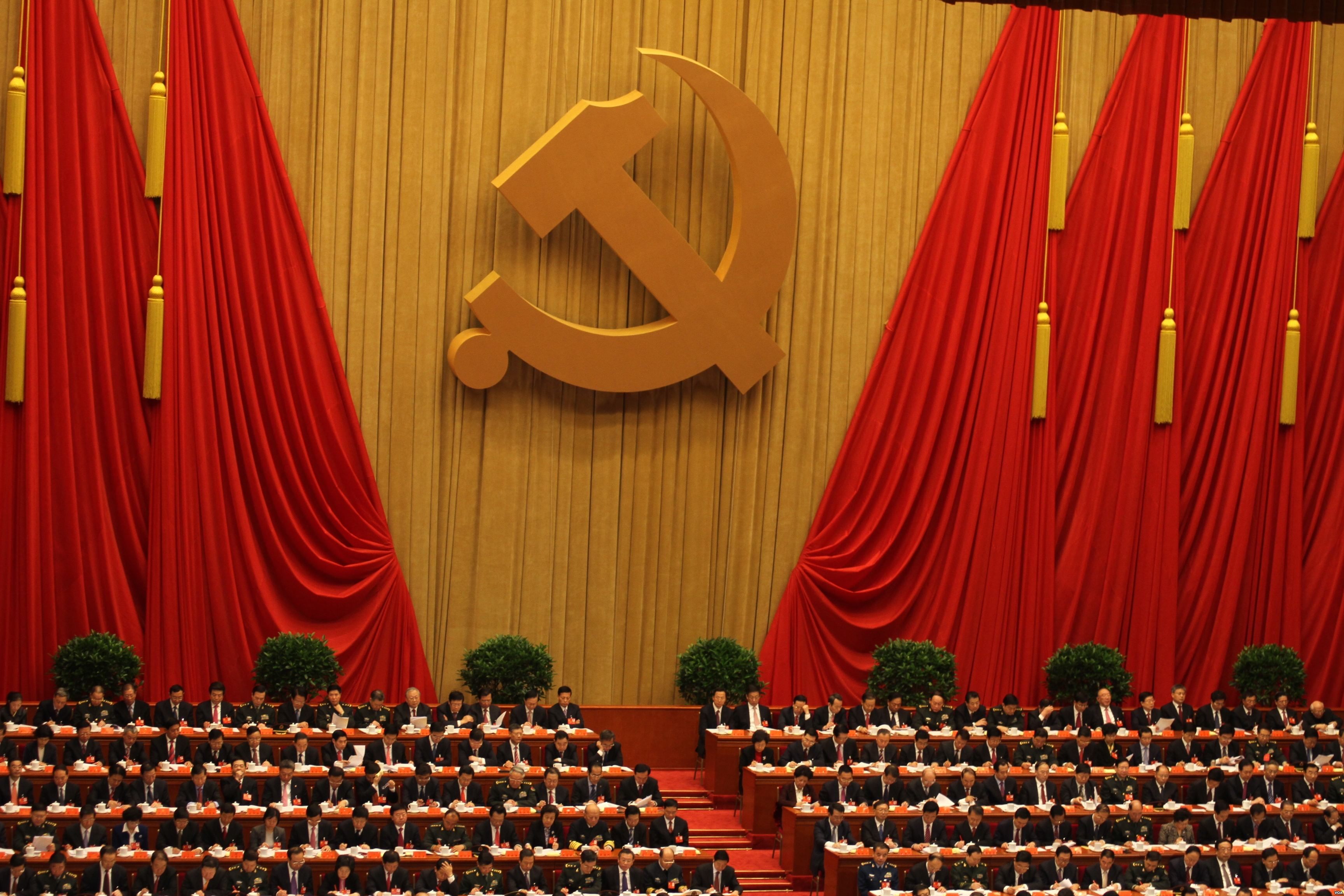
Look! We’re matching today. The 18th National Congress of the Communist Party of China, ruled by the Select Seven. (Photo: 东方/Wikimedia Commons CC BY-SA 3.0)
When a politician’s hair goes from black to white, this can signal ruin. The most notable example of a disastrous descent is former Politburo member Zhou Yongkang, who earlier this year became the highest-ranking official speared by the president’s anti-corruption campaign. Appearing in public for the first time since losing mianzi, the 72 year-old went from a respected head of refined black hair to a criminal à la Albert Einstein. He appeared to have aged 20 years overnight, and the public took note. One reporter went so far as to say that by 2013, “the removal of hair dye had become an expected part of Chinese scandal,” while writer Paul French was quoted in Foreign Policy as saying that publicly parading a senior Chinese official in his natural hair is like making him walk naked through the streets.
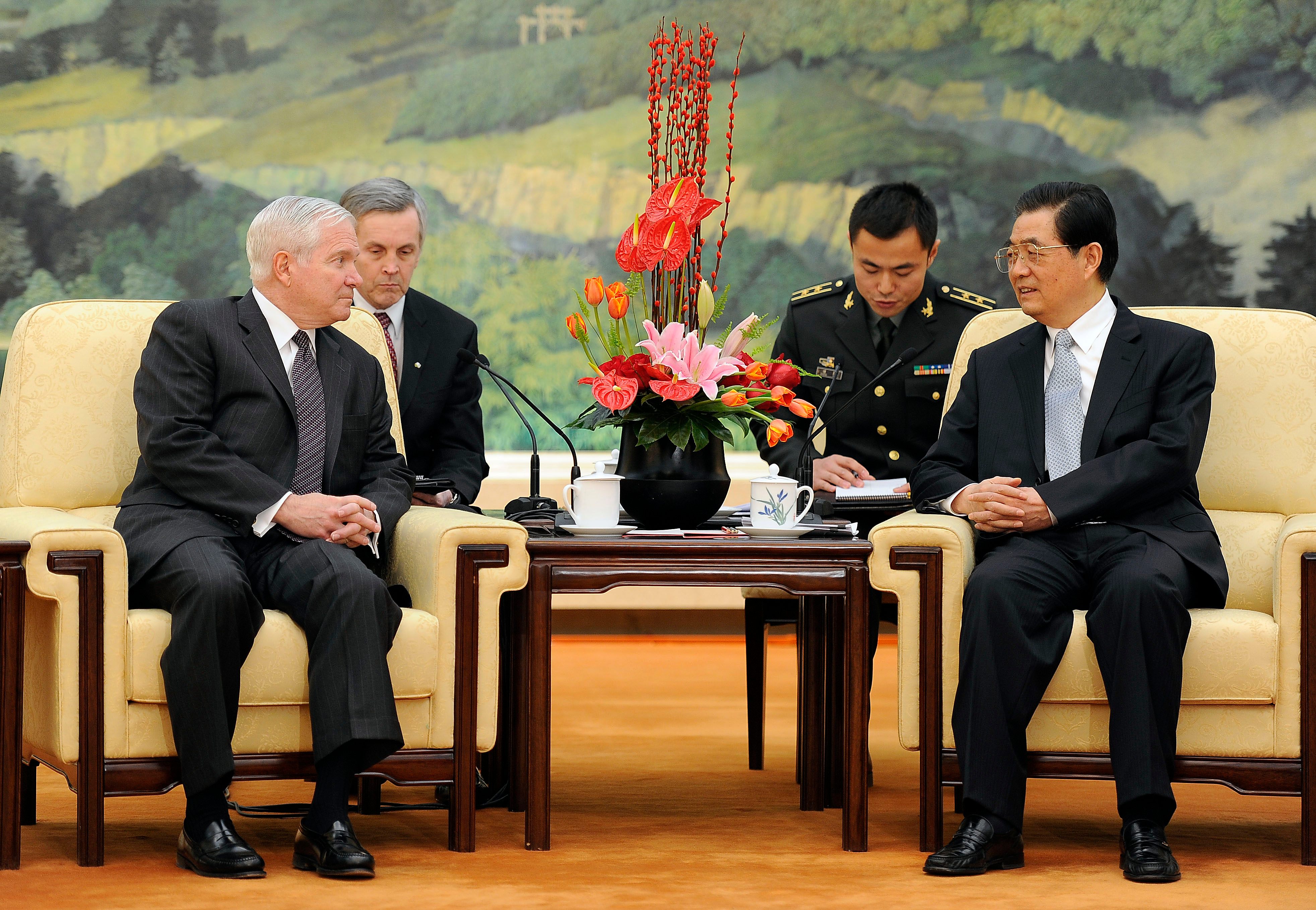
Same age, different hair. Robert Gates and Hu Jintao, both 66 pictured here in 2011. (Photo: Jerry Morrison/Wikimedia Common CC BY-SA 3.0)
This brings up a big question: When a head honcho does flaunt a few white hairs, what does it mean? Or, are we looking way too far into things?
The latter is not an option, according to Professor Tsang, who told the BBC that the Communist Party “is one of the most disciplined institutions ever devised by humankind…Not a lot at that level happens purely by accident.”
In China’s highest echelons, white hairs do not escape on a whim. Former Chinese premier Zhu Rongji, now 87, has gone naturally grey, which some see as an indicator that he is no longer under the protection of the Party.
As for President Xi’s new look, well, the meaning is murky. Perhaps he is willing to stand out. Perhaps the latest dye job was subpar. There is still much we don’t know about China’s political inner workings. You could say that we’re still in the dark—much like everyone’s hair.



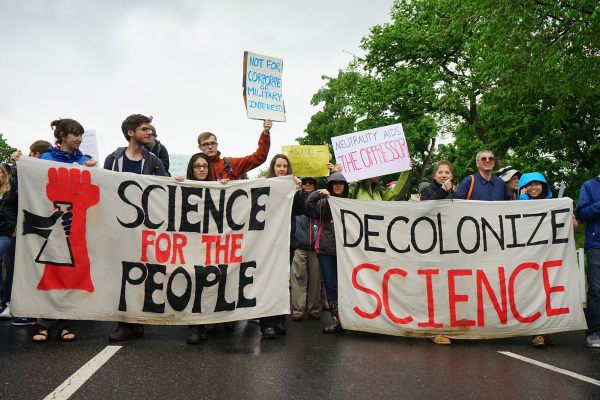

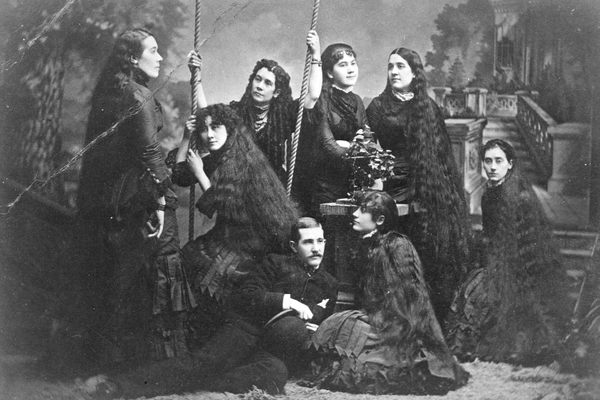

Follow us on Twitter to get the latest on the world's hidden wonders.
Like us on Facebook to get the latest on the world's hidden wonders.
Follow us on Twitter Like us on Facebook